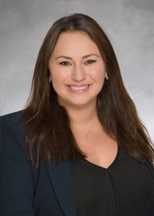By Anastasia Markie, Esq.
It used to be that “back-to-school season” brought a sense of dread to the millions of school children who would soon be trading summertime fun for structure and homework. Today, after being home for months, many kids wish they could go back to school to learn in person with their teachers and classmates. Their parents—who are coping with balancing work and family life while overseeing their children’s distance learning—are definitely missing sending their kids off to the classroom setting!
One student from Burbank Elementary School, who started attending masked tutoring sessions with a handful of students, was “happy there was somewhere he can go to see kids and feel like a classroom.” I’m sure his parents agreed.
Many feel that distance learning is a poor substitute for the classroom
Not surprisingly, the school closures have resulted in lawsuits. For example, following the school closures in March, nine parents brought suit against Governor Newsom, California’s Superintendent of Schools and the State Public Health Officer, claiming the state’s school closure mandate caused their children to suffer in various ways. They asserted that these changes caused declines in their children’s mental health due to a lack of interaction with teachers and peers, declines in discipline regarding completing schoolwork, and declines in learning due to a generally poor-quality distance learning experience.
In addition, some of these parents say they were forced to pay for private school or tutoring due to distance learning issues. The parents of a child who has autism said they were forced to hire a tutor to replace the special education services that were not received.
Although most California parents did not file lawsuits over the school closures, few were happy with the situation, and even fewer are looking forward to the “distance learning experience part 2” that is beginning now.
Unfortunately, most private and public schools in California will not be re-opening for in-person education in the Fall
Governor Newsom has stated that “health data will determine when a school can be physically open – and when it must close – but learning should never stop.” The Governor created a Five Point Guide to determine when and under what circumstances schools may re-open in the future. Here are the highlights of these five point:
1. Local Health Data to Determine if School is Safe for In-Person Instruction – The California Department of Public Health’s six-factor tracking system will be used to determine which, if any, school districts may begin in-person instruction, including private institutions. There is an exception only for elementary schools in districts where the district superintendent, parents, labor, and the community agree to a waiver, requested from and granted by the local health officer.
2. Schools Must Support Distance Learning – Under the Legislature and Governor Newsom’s new budget, school districts will be required to provide the following to students in distance learning settings:
- Devices and connectivity (Wi-Fi) for every child,
- Daily live interaction between students and teachers,
- Challenging class assignments, equivalent to in-person instruction, and
- Support and intervention for English learners and special education students.
3. Everyone Must Wear Masks – Once a campus re-opens, the mask requirement applies to all staff and students in the third grade and above. Students in second grade and below are strongly encouraged to wear masks but not required to do so. Students will be given masks if needed.
4. Everyone Must Practice Social Distancing – Once a campus re-opens, adults are required to stay six feet away from one another and from students. Students are required to stay six feet away from each other as practicable. Anyone entering the school must undergo a health screening and anyone exhibiting symptoms, such as fever, will be sent home immediately.
5. School Staff Should Undergo Periodic Testing – Once a campus re-opens, it is recommended that staff members undergo regular COVID-19 testing based on local disease trends. The state will provide resources and technical assistance for coronavirus investigations in the school.
To assist with the transition, the California Department of Education launched a task force focused on connecting students with technology at home. Additionally, the Legislature and Governor Gavin Newsom created a budget with $5.3 billion in extra funding to help schools implement distance learning.
Will this plan work?
Upon reviewing this plan, a number of questions come to mind. Will this plan improve the quality of distance learning? Is the California Department of Public Health’s six-factor tracking system effective and reliable? Will teachers be responsible for ensuring that their students (especially those in elementary school) will remain masked and socially distanced from each other while at school? Can teachers and school districts be held liable if a student contracts COVID-19? Is “regular testing” of staff sufficient to ensure student safety, especially considering the possibility of asymptomatic people?
The reality is, no one knows if this plan will work. It seems these unprecedented times will require some trial and error, which undoubtedly, will likely generate further litigation by parents, students and teachers in the years to come.
For more information, please visit: https://files.covid19.ca.gov/pdf/guidance-schools.pdf


